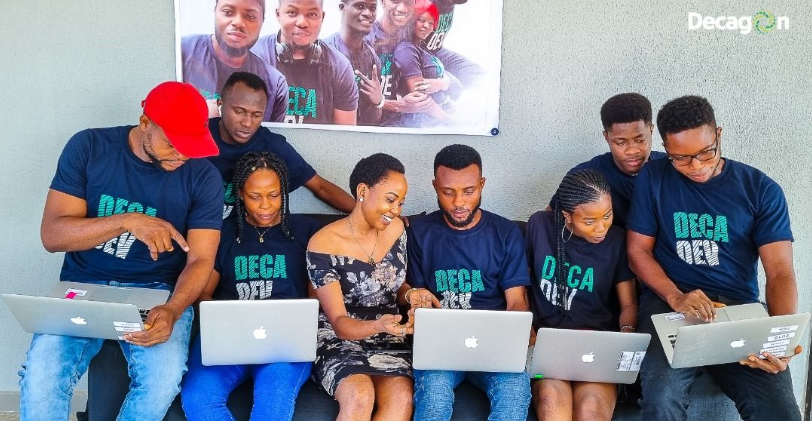As of December 19, 2022, African startups have jointly raised $3.5 billion, per BD Funding Tracker. Although some of these startups have laid off some of their employees due to the economic downturn, previous reports have shown that the continent is battling a shortage of tech talents.
A 2020 report from the IFC and Google last year estimated that there are currently some 700,000 professional developers across Africa, with just over 50% concentrated in Egypt, Kenya, Morocco, Nigeria, and South Africa. Compare that to just the state of California, which has an estimated 630,000 developers.
At the time, some experts argued that the aforementioned number is higher than the reality of the talent pool on the continent, especially with the continued migration of these talents while others work outside the continent remotely. For instance, four out of every ten African software developers now work for at least one company based outside of the continent, while five work for local startups, according to the 2021 Africa Developer Ecosystem report[pdf] by Google.
To bridge the tech talent shortage and also reduce unemployment in Africa, especially in Nigeria where the unemployment rate is about 33%, edtech startups provide learning and job placement opportunities for young Africans.
Ms Akinsiku is one of many young Nigerians and Africans who have benefited fro these edtech startups that train, empower and support talents with the knowledge, resources—laptop, co-working hub, stipends, network and opportunities they need to thrive. Taking it a step further, they make it their duty to help these talents get jobs locally and in the international market.
Some of these startups are Stutern, Decagon, DevCareer, AltSchool, and Andela.
Stutern
Founded in 2015, Stutern is a Lagos-based skills development and job placement platform that trains and connects young African talents with long-term employment.
The platform provides learning opportunities in software/web development, data science, UI/UX design and digital marketing. The program is for 16 to 24 weeks. However, group classes hold bi-weekly. After the learning process, participants also get an internship placement at a partner company.
Getting into Stutern takes a four-step application process. The first stage requires that you fill out an application form. Then, the next stage requires you to respond to soft skills questions in writing and video format. After that, you also respond to technical questions that are specific to the course you have chosen. The last stage is where you will be notified of your admission status.
Is Stutern free?
Applicants don’t need to pay any tuition fee till after the program when they get a job. However, applicants are required to pay ₦50,000 as an enrollment fee.
Some of Stutern’s beneficiaries currently work at notable tech companies including; Cowrywise, Paystack, Flutterwave and Jumia.
DevCareer
DevCareer was launched in 2019, it runs a three-month training programme and provides participants with enough resources and training to land their first jobs. The non-profit organisation empowers African youths with skills such as frontend development, backend development and mobile app development.
Since its inception, the organisation has supported over 5,000 Africans with laptops or courses through its popular programme, Laptop4Developers.
DevCareer does not collect any form of payment from prospective candidates. The application process takes a four-level assessment stage. Assessment is usually based on several criteria such as aptitude tests, coding tests and physical interviews.
AltSchool Africa
AltSchool Africa is a sub-institution of TalentQL, a tech talent outsourcing company.
The edtech provides learning opportunities in the following areas: frontend engineering, backend engineering, cloud engineering, product design, product marketing, product management, data engineering, data analysis and data science. AltSchool has partnered with Michael and Cecilia Ibru University (MCIU), Ughelli Delta State and other “reputable higher institutions across the continent” as certificate-awarding institutions.
You need a minimum of 75% on the entrance exams to be granted full admission into the school. AltSchool charges a non-refundable application fee of $20 for each learning track. Meanwhile, the tuition can be paid upfront, quarterly or monthly.
Andela
In its first two years, Andela recruited budding software engineers and trained them in four-to-six months intensive “boot camps” investing in them by paying them to learn and then placing them in competitive jobs.
However, since the pandemic struck in 2020, the startup pivoted to matching senior Software engineers with employers directly. Today, Andela provides leading global technology companies with access to a high-skilled resource pool.
The Andela recruitment process involves an interview with the recruiter, and hiring manager and a culture and values/leadership assessment. The final stage interview will be an in-depth evaluation of how you are expected to perform. And the performance will be measured across three areas: impact over activity, technical skills, and critical thinking.
Decagon
Decagon trains young talents with software engineering and leadership skills. The training institute uses merit-based loan financing for students in Nigeria—this model allows the startup to offer a pay-after-learning plan that provides trainees with laptops, accommodation, internet, meal allowance and a stipend.
This financing model is in partnership with Sterling Bank and the Central Bank of Nigeria. No upfront payment is required.
The training program runs for six months and participants get to Software development skills. Intensive on-site training is done for four months, and the internships and job search placement are done for the remaining two months.
After applying at Decagon, applicants will be sent the study materials if they are identified as “high-potential candidate”. The study materials will prepare the applicant for the assessment.
The next stage is on-ramp. Here, the applicant will take online classes organized by Decagon to help them understand programming concepts and prepare for the assessment.
After that, an in-person assessment is done at any of Decagon’s centres around Nigeria to determine if you are a good fit for the program. Successful candidates will be offered admission into the Decagon program.
Get passive updates on African tech & startups
View and choose the stories to interact with on our WhatsApp Channel
Explore




